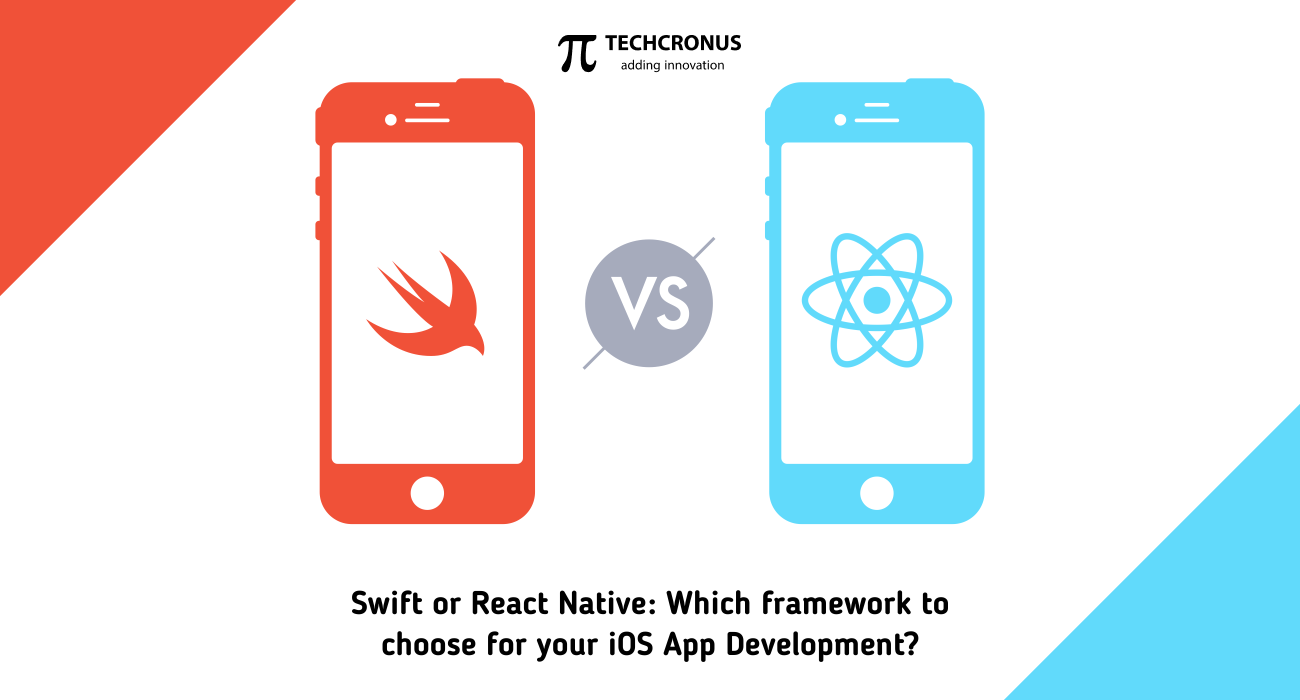The term Cloud Computing is generally used in web development. But, it is not limited just to web development. With an increase in the usage of smartphones, technology is advancing for Android as well as IOS. Mobile Cloud Computing is one such addition to mobile app development. It has transformed the existing world of mobile phones. A large number of enterprises are shifting towards Cloud Computing due to the increasing popularity.
This booming technology integrates cloud computing applications with smartphones. This integration has proven to be one of the best technological advances, both for cloud computing and mobile phones. Now, your limited phone storage won’t be an issue. With MCC, you can store your data on the cloud and access it anytime from anywhere.
What is React Native?
React Native is an app development framework from Facebook which allows developing Native mobile apps for iOS and Android platforms with help of single JavaScript codebase. React.js library is used for the creation of accurate mobile app in Native form. React Native also exposes JavaScript interfaces for platform APIs, so a React Native app can access platform features like the phone camera, or the user’s location.
What is Swift?
Swift is the framework which is general purpose and compiled programming language developed by Apple. Developers can create iOS, macOS, watchOS, tvOS, Linux and z/OS apps using Swift. Swift is designed to work with Apple’s Cocoa and Cocoa Touch frameworks and the large body of existing Objective-C code written for Apple products.
How do they compare
Now let us compare both frameworks on the basis of 3 key parameters to help you make the right decision about your native mobile app development project.
1. Development process
- The process of Swift Native app development and React Native app development is almost similar. The only difference is in the order of consecutive tasks. An advantage of React Native is less development time. With developing a simple app using React Native, a developer can save about 30% development cost and time as compared to Swift framework.
- React Native offers hot reloading in terms of design layout which keeps the app running and also allows adding new file versions which have been edited at run time. This helps in preserving the states and this feature proves to be helpful when you are working on app user interface (UI).
- However, React Native does not have all the components as available in Swift framework. It is an open source platform and gaining fast popularity because of active support and community of Facebook. There are number of functions which are unavailable in React Native so at times, developers need to build the modules on their own.
- Also Learning Swift was relatively easy, as it is similar to many languages like Java, C++. Furthermore, Apple’s IDE (Xcode) is without any doubt very advanced and user friendly. You can use Storyboard and set up the app screens the way you want. This is something completely lacking in React Native.
2. Performance
- A Native mobile app development company considers performance as the important factor for any mobile app project. It is important to check which framework is provide better performance.
- There are three main performance factors to check. They are CPU usage, memory allocation and the energy impact on tasks such as first run, taking call, opening URL, etc. It is also important to check the speed of scrolling and opening language list to call i.e. check frames per second.
- It can be said that in terms of performance, both React Native and Swift have similar efficiency and behavior.
Tests have been performed for measuring the performance of both React Native and Swift frameworks.
- React Native wins over Swift as it is 1.86% more efficient than Swift. While performing the task, a spike was recorded in CPU usage and it was observed at the same time when login button was clicked.
- React Native again wins the addition and deletion tab being 1.53% roe efficient than Swift. While performing the additional and deletion of items from list, spikes were measured in CPU usage.
- In terms of page view, Swift beats React Native with 8.82%. Shifting from one page to another needs less CPU usage in Swift as compared to React Native.
- While using maps tab for find the current location, the CPU measurements were recorded and compared and it concluded that Swift is better than React Native.
3. Cost
Onsen UI is a relatively new open-source UI framework and components for HTML5 hybrid mobile app development, based on PhoneGap / Cordova. It contains the large collection of ready to use components. The developers are able to write apps in JavaScript and HTML5 and it can be also combined with Cordova and Phonegap in order to develop the fully featured app. It is easy to use, free and flexible as well. Onsen has great documentation to offer which includes lots of examples and layouts for the app structures.
- The offshore mobile app development companies in India have started considering React Native as a first choice for developing any small-mid scale mobile apps because of the shorter development cycle and the cost efficiency. You can forgo the cost of two teams for android and iOS if you use React Native and it also has a reduction in resources employed.
- However, Swift is still the primary choice when it comes to developing Enterprise level mobile applications as there are no budget constraints in such cases.
Conclusion
Two applications, one in React Native and one in Swift, with same functionalities and UI were developed. While doing a performance review, it was found that Swift app was a much better performer than React Native app in terms of CPU usage, while in terms of GPU usage, React Native out performed.
Making a decision between React Native and Swift framework depends on your app requirement and complexity. For complex mobile application development, it is recommended to go with Swift based development. For simpler apps, React Native is a better option as it gives you quick turnaround and ROI. The major advantage of React Native is that it allows mixing of Swift with pure Java Script components. Which is why people consider React Natives the platform for future iOS app development.
If you are in the process of developing your next mobile app, please feel free to contact us for a free technical consultation and quote.
















 Get Started
Get Started

